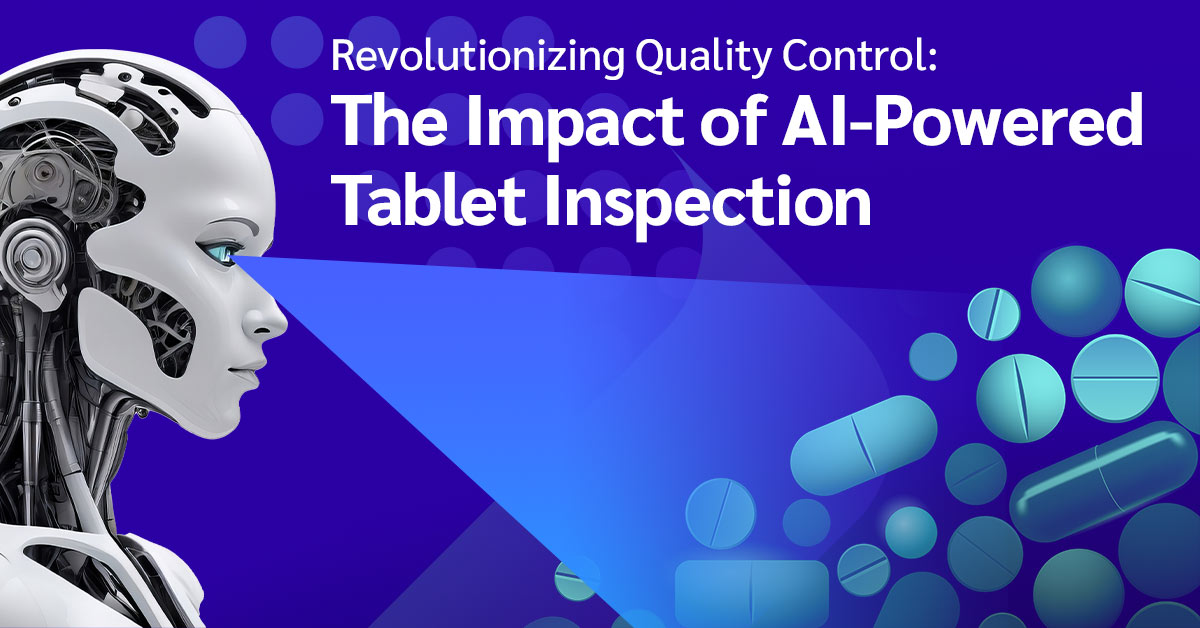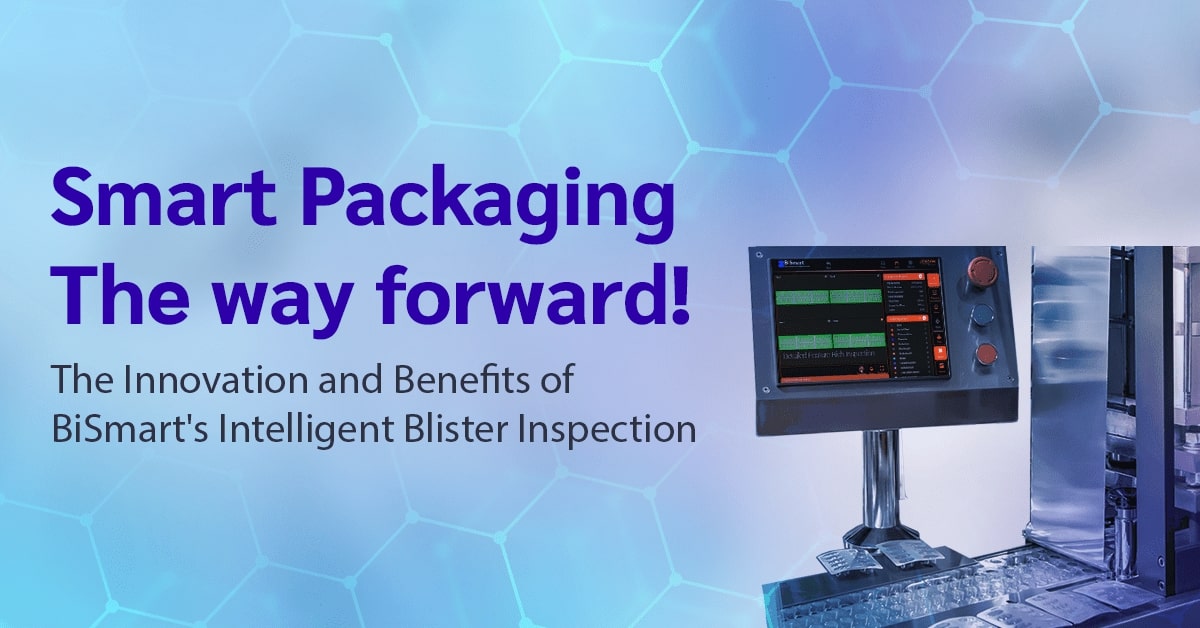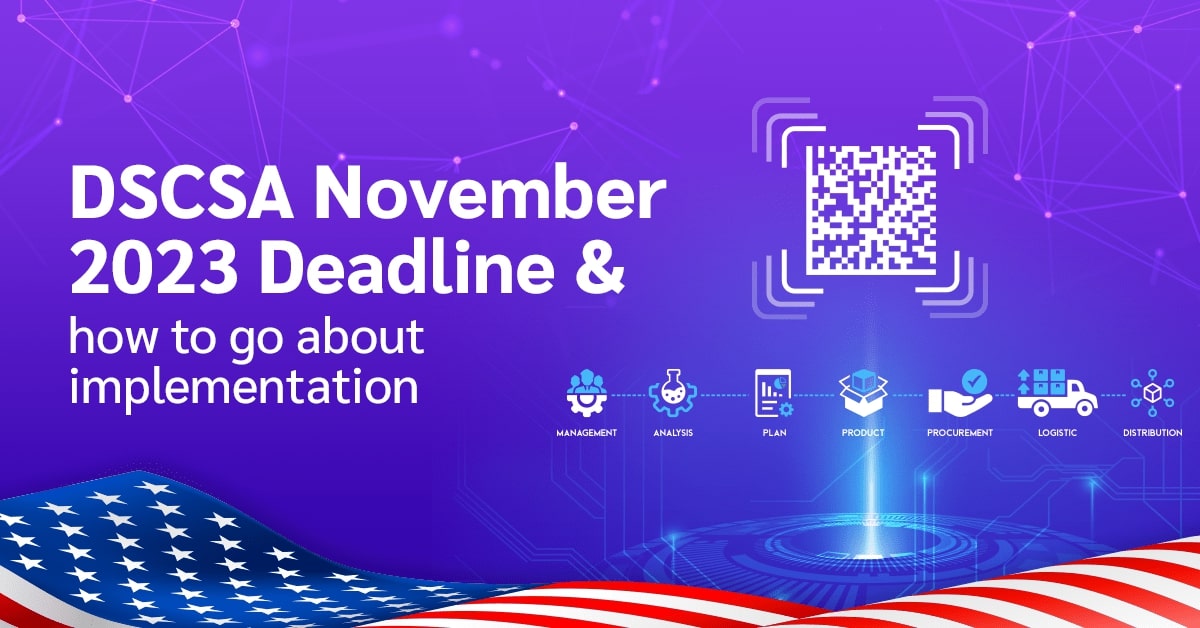In the pharmaceutical industry, product quality and safety are non-negotiable. Every tablet manufactured must meet rigorous standards to ensure it is safe, effective, and compliant with regulatory guidelines. Traditionally, quality control for tablet inspection has relied on human oversight and basic automated systems. However, with the advent of AI-powered tablet inspection, the industry is experiencing a groundbreaking shift. This advanced technology enables faster, more accurate inspections, leading to safer products and greater operational efficiency. Here’s a closer look at how AI-powered tablet inspection works and the transformative benefits it brings.
What is AI-Powered Tablet Inspection?
AI-powered tablet inspection uses machine learning algorithms and computer vision to inspect pharmaceutical tablets with unparalleled precision. This technology is integrated into tablet production lines, where it automatically scans each tablet for defects, variations, and inconsistencies. Equipped with deep learning models, these systems can learn from vast datasets and improve over time, enabling them to detect minute variations and complex patterns that traditional inspection methods might miss.
This advanced inspection process goes beyond simple visual checks, harnessing the power of deep learning to uncover complex patterns that are challenging or impossible to engineer with traditional computer vision methods. It can distinguish between acceptable and defective tablets based on pre-set parameters like size, color, shape, coating, and even texture. By leveraging AI, these inspection systems can adapt to new tablet types and inspection criteria, enhancing flexibility and efficiency.
How our AI is a Game-Changer for Tablet Inspection
The introduction of AI in tablet inspection has several advantages that can drastically improve the quality and efficiency of pharmaceutical production.
- Enhanced Accuracy and Consistency
- Unlike human inspectors or conventional automated systems, AI-powered inspection solutions can achieve near-perfect accuracy. They’re capable of detecting minuscule defects, including hairline cracks, color inconsistencies, and slight deviations in tablet size or shape.
- This precision ensures that defective tablets are identified and removed from the production line before they reach consumers, significantly reducing the risk of recalls and enhancing patient safety.
- Rapid Detection and Real-Time Analysis
- AI-powered inspection systems operate in real time, analyzing thousands of tablets per minute. This rapid detection capability means that defects are identified immediately, allowing for faster response times in case of production issues.
- Real-time analysis also enables production adjustments on the fly, reducing downtime and minimizing waste by allowing operators to address issues as they arise.
- Adaptability to New Tablet Designs and Criteria
- As pharmaceutical companies innovate with new tablet designs, shapes, and coating types, traditional inspection systems may struggle to keep up with the variability. AI-based systems, however, can adapt to these changes by learning from updated datasets.
- This adaptability makes AI inspection solutions ideal for manufacturers looking to scale production or diversify product lines without requiring extensive reconfiguration or new equipment.
- Data-Driven Insights for Continuous Improvement
- AI-powered systems not only inspect tablets but also collect data on production quality trends. This data can be used to identify recurring issues, optimize manufacturing processes, and reduce the likelihood of defects over time.
- By analyzing patterns in defects and variations, manufacturers can gain valuable insights into their production lines, allowing for continuous improvement and preventive maintenance.
- Compliance with Regulatory Standards
- Regulatory bodies have stringent standards for pharmaceutical quality control. AI-powered inspection systems provide a higher level of accuracy, consistency, and traceability, which simplifies compliance with these regulations.
- By integrating AI-driven solutions, manufacturers can ensure that their quality control processes meet or exceed industry standards, minimizing the risk of non-compliance.
Key Features of AI-Powered Tablet Inspection Systems
- High-Resolution Imaging and Computer Vision: AI-driven inspection systems utilize advanced imaging technology to capture high-resolution images of each tablet. This enables the identification of surface-level and structural defects that might otherwise go unnoticed.
- Defect Categorization and Analysis: These systems can classify defects, such as surface cracks, incorrect color, coating issues, and more. By categorizing defects, AI-powered systems make it easier for operators to identify specific issues and address them.
- Automatic Rejection Mechanisms: Once a defect is detected, the system automatically removes the defective tablet from the production line. This seamless process ensures that only high-quality products move forward for packaging and distribution.
- Customizable Inspection Parameters: AI-based systems can be configured to recognize different defect types or criteria, depending on the specific requirements of each tablet type. This flexibility is invaluable for manufacturers with diverse product lines.
Benefits for Pharmaceutical Companies and Patients Alike
The advantages of AI-powered tablet inspection extend to both pharmaceutical manufacturers and the patients they serve. For manufacturers, AI inspection improves production efficiency, reduces waste, and cuts down on the risk of recalls, which can be both costly and damaging to a company’s reputation. For patients, the technology provides peace of mind, knowing that the medication they rely on meets the highest standards of safety and efficacy.
Conclusion: The Future of AI in Pharmaceutical Quality Control
The adoption of AI-powered tablet inspection marks a significant leap forward in pharmaceutical manufacturing. With improved accuracy, adaptability, and real-time processing, AI-driven systems ensure that each tablet is inspected thoroughly and consistently, contributing to safer products and smoother operations. As AI technology continues to evolve, we can expect even greater advances in quality control, cementing AI-powered inspection as an indispensable tool in the quest for better, safer pharmaceuticals.
By integrating AI into tablet inspection, the industry is not just keeping up with regulatory standards but setting new benchmarks for quality, efficiency, and reliability. For pharmaceutical companies and consumers alike, AI-powered inspection represents a step toward a safer, more dependable future in healthcare.
Learn more about Jekson’s Vision TiSmart the AI-Powered Tablet Inspection System, Smarter, Faster and more Reliable. Contact us at +91 63525 29570 | marketing@jeksonvision.com






